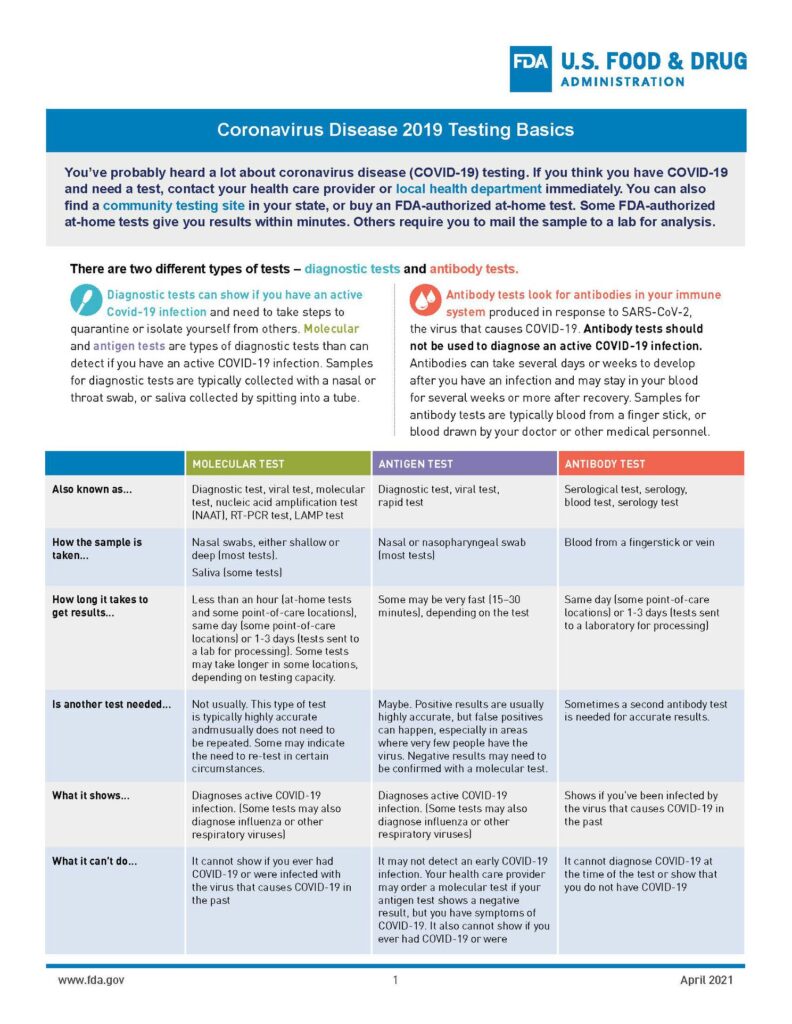A: There are two types of tests for the virus that causes COVID-19: diagnostic and antibody.
Different types of tests have been developed based on the science of the virus and our body’s response to it. Diagnostic tests will tell you if you have an active viral infection—that is, if you have COVID-19 right now. Antibody tests can tell if you’ve ever had an infection in the past, but should not be used to diagnose COVID-19. Each type of test is best suited for specific situations. Note that the focus here will be on tests available to the public in your clinician’s office.
Test available through clinics and medical offices at this time fall into two categories: diagnostic and antibody tests.
Diagnostic tests (PCR, NAA, and antigen) can detect if you have active infection because they look for specific parts of the virus. These tests are used to detect an infection within days to weeks of being exposed to someone who is infected, or when we get symptoms. The test is usually done by a nasal or throat swab.
Antibody tests can detect if you’ve ever had COVID-19. These tests look for components of your immune system called immune globulins— specifically IgM (a first responder), IgG (a later, longer responder), and IgA (a respiratory tissue responder). Antibodies recognize and neutralize viruses. Samples for tests are obtained by blood draw or finger stick two weeks after exposure.
T-cell tests are not diagnostic so some sources lump them with “antibody tests”. T-cells are white blood cells that detect and kill cells infected by the virus. They act early in the cascade of immunity. Although T-cells get to work sooner than antibodies, the blood samples for these tests should be collected no sooner than two weeks after exposure.
Both diagnostic and antibody tests can give rapid results in 10-20 minutes right in the clinic—but rapid result tests are less accurate. Both types of tests can also be performed by certified labs and take 1-3 days to get results. These lab-processed tests have greater accuracy.
For more information, see the resources listed below and a helpful graphic provided by the FDA.
Directory of local health departments
Rapid antigen test reliability in asymptomatic patients



